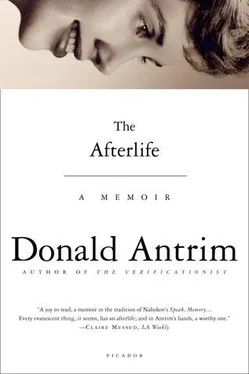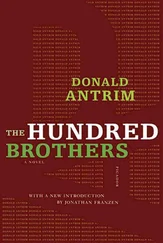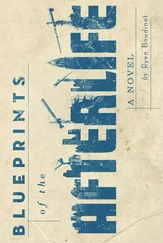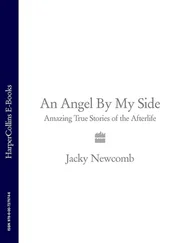The windows faced a construction project. The hotel was building a new wing. All of a sudden, the sun was up and the day’s work with heavy equipment had begun. I got out of bed and drank coffee, cup after cup. I’d arranged to meet a lawyer my mother had retained for a lawsuit she’d brought against the previous owner of her house, the real estate agent who’d handled the sale, and a Black Mountain oil-company owner. Shortly after moving in, in 1997, she’d smelled fumes. The heating-oil tank in her basement had been leaking into the topsoil. Without a clean bill of health from the EPA, her house — paid for in cash — would be worthless. A suit for damages had dragged on for more than a year, and my mother had made enemies in Black Mountain. I ran downstairs to meet the lawyer, already behind in his day’s schedule. He offered to take me to the hospital, and talk along the way. Driving through Asheville, he told me not to worry about the oil underneath the house. He told me that he admired my mother, whom he saw as a courageous person. He asked me if I’d ever married.
“I haven’t.”
“No? Why not? You ought to try it,” he said, and went on to describe his happiness in his second marriage, which had gathered the children from his and his wife’s first marriages together in one family.
At the hospital, my mother complained that her GP had not visited that day. One of the nurses thought he might be in the emergency room. I went downstairs and entered the maze of corridors leading to the ER. When I got there, I saw, through the doors to the ward, my mother’s doctor. I pushed open the swinging doors, marched past nurses, and asked him if I might speak with him. He put down his clipboard and we chatted — as if getting to know each other — and he told me, “There’s nothing we can do about your mother’s cancer in the long run, but we can give her time, and she needn’t suffer.”
“I understand.”
“Talk to her about radiation. She’s a good lady.”
“I’ll do what I can,” I promised. On my way to see her, though, I had the thought that I might prefer her gone sooner rather than later. When my grandmother died, my mother had proclaimed that, unburdened of lifelong parental constraints, she would be free at last to move to the San Juan Islands, a place she’d never visited, but which she understood to be a secret garden for women artists. Now I was having my own fantasy about the freedom to pursue happiness. All I had to do, I thought, was respect her rejection of medical interventions, and she would die by Christmas from fevers that would make her delirious.
When I got to her room, though, I told her that her doctors were not conspiring to harm her. “They’re doctors, Mom. They took an oath.” And I begged, “Try radiation?”
“I’ll think about it.”
“Will you? Please?”
“I said I’d think about it.”
A Hospice worker appeared, and my mother said, “It’s in my brain! I feel the cancer in my brain!”
The woman said, “You can’t usually feel it like that,” and turned to me and said that someone would need to be at my mother’s house the next morning. A hospital bed, an air compressor and hoses, and portable tanks were scheduled for early delivery.
I could get a lift to Black Mountain, it turned out, from a friend of my mother’s who worked near the hospital.
“I have to go get things ready, Mom. They’re kicking you out of here in a few days.”
She squeezed my hand, laughed, and coughed. “Go ahead, Don.”
On the drive, my mother’s friend told me about her grown son, whom she had not seen for many years because he refused to visit her. I nodded my head sympathetically and stared out the window at the kudzu strangling the life out of trees and plants beside the highway.
“I don’t know whether your mother has told you her theories about your family. I guess she hasn’t,” the friend said.
“What does she believe?”
“Your mother thinks her father wasn’t her father. There was another man in your grandmother’s life.”
“Jesus.”
“Why would your mother say that?”
“I don’t know. What do you guess? As her friend.”
“We’re not close anymore,” the friend said, and commented on my mother’s flair for working people against each other. “It’s hard to be close to someone who gets people mad at each other.”
We were nearing the Monte Vista Hotel, on Main Street. I had to check in, watch the television for reports on Hurricane Floyd, call R. in New York and rant into the telephone, try later to sleep, wake up at a reasonable hour, and meet the oxygen truck at my mother’s house a few blocks away. If time remained before my sister arrived, I might, in the early afternoon, visit the estate lawyer (who was not, I should say, the lawyer working on the oil-spill suit) handling my grandmother’s — and, soon, my mother’s — last will and testament. In the event, I did what I needed to do (including standing on the Monte Vista lawn sometime after midnight, praying to my grandfather’s spirit for any kind of guidance he — it? — could give), and, at the lawyer’s office, in a brick house on a quiet street, I was handed a pair of sweetheart wills signed by my grandfather and grandmother in the early eighties, the second of which — my grandmother’s, already in probate — left all their worldly goods to my mother.
My grandfather did not leave behind great wealth. Like many in his generation, he had been distrustful of the stock market. Yet he’d been frugal, and had saved enough to help his family when needs arose. Before he died, he told us his intention to draw up a will that would disperse whatever remained, after his and my grandmother’s deaths, among my sister, me, and our mother. He told us he wanted to do this out of consideration that his grandchildren were now, like his daughter, adults.
“That’s not the will. That’s not the will,” I said over and over to the confused lawyer.
And later that day, when my sister arrived in the car she’d rented at the Charlotte, North Carolina, airport, I said, practically as she was opening the car door and stepping out, “Mom fucked us.”
“What?”
“She took in a 1983 will! She grabbed an old will out of the file! Leaving everything to her!”
We set up a labor routine that followed old-fashioned gender lines. My sister occupied our mother’s house, phoning nursing agencies and scheduling interviews. I commandeered the hotel bar as a base from which to contact doctors, lawyers, and the woman in charge of the money-market accounts. I saw my mother as a suicide and a cheat who would steal her children’s birthright, and I hated her, with her brain-cancer dreams and her banishment of her father, without whom she must have felt orphaned and alone, as did I — a fact that I savagely demonstrated the evening my sister and I drove west on Interstate 40 to the hospital, where we packed our mother’s suitcase, put her shoes on her feet, and rolled her in her wheelchair past the nurses’ station, into and out of the elevator, across the hospital’s expansive lobby, and into the Appalachian night.
We helped her into the rental car’s front passenger seat. I recall that I tilted back the seat for her comfort. I loaded the oxygen and her suitcase into the back, then climbed into the car. I was sitting, as I remember, behind my mother, and could see, passing through the space separating the front seats, the clear tubing connecting her nostrils to the squat green tank propped beside me like some strange new addition to the family.
“How are you doing, Mom?” my sister and I asked. “How are you feeling?”
“Okay, kids.”
Terry started the car. We began the drive. I couldn’t resist. Addressing the back of my mother’s head, I said, “Mom, do you remember what Granddaddy told us about his will? Right before he died?”
Читать дальше












